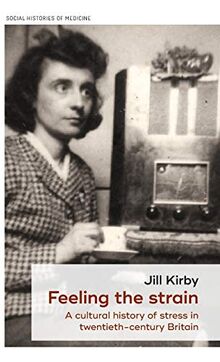
How did stress become the ubiquitous explanation for a range of everyday ills by the end of the twentieth century in Britain? Examining the popular discourse of nerves and stress, this book provides a historical account of how ordinary people understood, explained and coped with the pressures and strains of daily life across the period. It traces the popular and vernacular discourse of stress, illuminating not just how stress was known, but the ways in which that knowledge was produced.
By taking a cultural approach to stress, Kirby focuses on contemporary popular understandings, revealing continuity of ideas about work, mental health, status, gender and inherent individual weakness, as well as the socio-economic contexts that enabled stress to become the accepted explanation for such a wide range of daily experiences.
Drawing on a wealth of sources including self-help books, Mass Observation diaries and directives, oral history interviews, social science research and popular culture, it foregrounds continuities in the approach to managing stress and changes in ideas about causation. It reveals a vocabulary of 'nerves' and 'nervous disorders' as precursors to stress but also illustrates the mutability of the stress concept and how its very imprecision gave it utility.
Feeling the strain provides first-hand accounts from sufferers as well as their families and colleagues and offers insight into self-help literature, the meanings of work and changing dynamics of domestic life over the century, delivering a complementary perspective to medical histories of stress and other similar mental health conditions.